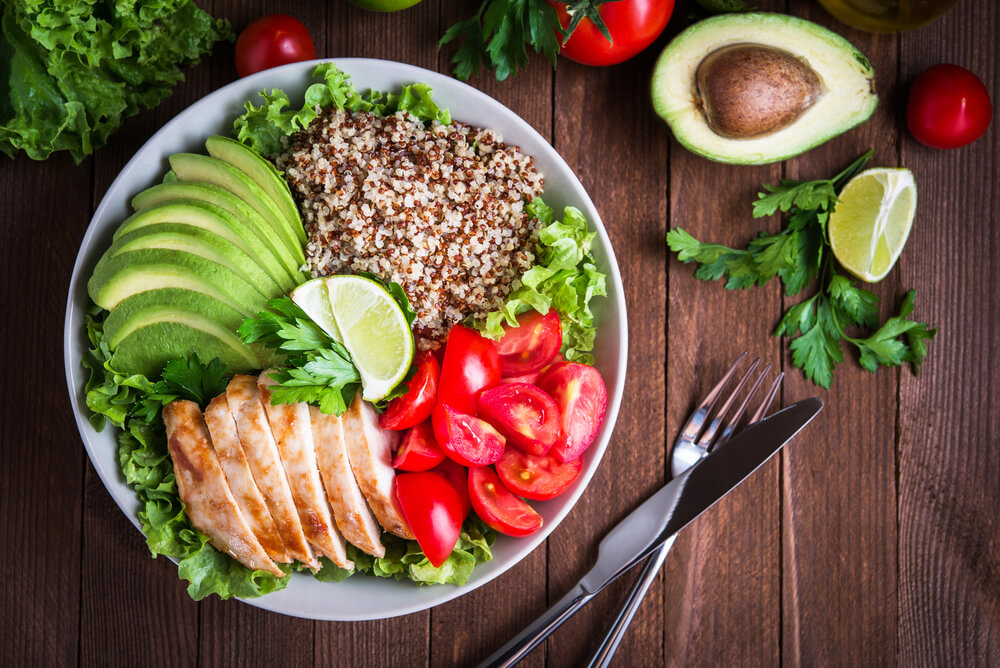It has already been established that healthy nutrition, eating healthy fats, vitamins, and other nutrients, can help fight and even prevent cancer.
Still, it’s also known that environmental and genetic factors are out of our control when it comes to cancer. Even then, research suggests that our lifestyle habits, including our diet, can significantly reduce a significant percentage of our lifetime cancer risk. In this article, Dr. Omar Rashid and his expert team will aim to talk more about cancer-fighting foods, the cellular immune system response, and other valuable info pertaining to diet.
The Importance of Healthy Nutrition
The foods you eat can profoundly affect your health, which can directly correlate with cancer risks. At the moment, research tends to look for associations between certain foods and cancer; instead of pointing out cause-end-effect relationships, it’s true that dietary habits can significantly influence malignancy risks.
It’s well known that eating a Mediterranean diet, fruits, vegetables, healthy fats, and foods high in antioxidants can help reduce the risk of several cancers. On the other hand, eating a diet full of processed meat may increase the risk of other malignant tumors, such as colorectal cancer.
Knowing the basics of healthy nutrition can be especially helpful if you have a family history of cancer, as small diet changes can significantly affect your long-term health.
Simple Dietary Changes to Decrease Cancer Risks

To help decrease the risk associated with malignancies, as well as other severe diseases, eating foods high in antioxidants such as lutein and basing your diet around whole grains, healthy fats, beans, nuts, and vegetables is essential.
As a rule of thumb, you should also try and cut back on fried and processed foods, simple fats, refined carbs, and simple sugars.
The Importance of Antioxidants
As said above, foods high in antioxidants such as lutein, beta-carotene, vitamin C, and E all play a crucial role in keeping the cellular immune system potent. Plant-based foods are literally filled with these compounds.
Veggies and Fruit
Adding more vegetables and fruit to your diet shouldn’t come as news because they are filled with vitamins, fiber, and other immune system-boosting ingredients. Still, remember to consume “whole foods,” including vegetables and fruit. In other words, eat them as close to their natural state as you can. For instance, opt for an unpeeled apple instead of drinking apple juice.
Focus on Healthy Fats
You probably know that overconsuming fatty foods can be linked to cancer development. However, healthy fats may actually help protect against cancer and improve the immune system’s cancer-fighting characteristics.
For starters, trans fats found in crackers, muffins, pizza dough, fried chicken, hard taco shells, and French fries should be limited to a minimum. Also, saturated fats from dairy and red meat shouldn’t make up more than around 10% of your daily calorie intake.
On the other hand, don’t be afraid to introduce more unsaturated fat sources from olive oil, fish, avocados, and nuts. For example, flaxseeds, tuna, and salmon are all excellent Omega-3 fatty acid sources, and they can decrease inflammation and improve heart and brain health.
Limit Refined Carbs and Sugar
As one of the leading causes of harsh blood sugar spikes, refined carbs can be linked to several serious health problems, including cancer. So, instead of consuming sweetened cereals, pasta, processed pastry, and soft drinks filled with sugar opt for whole grains, like barley, brown rice, oatmeal, and non-starchy vegetables.
In terms of drinks, you can always go with low-calorie options, unsweetened beverages, and, best of all, water.
These changes won’t only help you establish the ground rules of healthy nutrition but will also help you maintain a healthy weight.
Fiber
Foods high in antioxidants and fiber should be high on your priority list. They can be found in whole grains, fruit, and vegetables, which are crucial in keeping the digestive system healthy. They help potentially cancerous compounds leave the digestive tract before they can trigger any mutations, possibly limiting the risks of developing digestive tract malignancies.
Less Red and Processed Meat
Several studies have found links between cancer development and processed meat consumption, such as hotdogs, sausages, pepperoni, bacon, and salami. This might be due to the substances used to process the meat, such as nitrate preservatives.
On the other hand, risks may also increase if you eat red meat. To be safe, experts recommend limiting the consumption of these foods and opting for leaner protein sources such as eggs, chicken, fish, soy, and nuts.
Cancer-Fighting Diet Basics
While opting for healthy foods is essential, how you prepare and store your meals is another important factor in potentially preventing cancer.
Below, we will share some tips to help you get the most out of healthy nutrition.
- Include some raw vegetables and fruits daily, as they contain the most minerals and vitamins.
- Steam your vegetables until they are tender to preserve more vitamins and minerals. When cooking them, reuse the cooking water to get all of the nutrients.
- Wash all the fruits and veggies before eating them.
- Use immune-boosting spices like curry powder, garlic, rosemary, basil, turmeric, and ginger.
Cutting Down on Carcinogens
Unfortunately, some foods have cancer-causing compounds, usually due to the preservation or cooking process. They are primarily found in dried, cured, and preserved meats as well as charred and smoked options.
To reduce exposure to some of these compounds, cook oils on low heat (less than 240 degrees). This prevents the fats from becoming carcinogenic. Also, opt for steaming, broiling, and baking instead of pan-frying or deep frying.
Try not to charr your meats on the barbecue as it can create carcinogenic substances. Flip frequently, cook at the right temperature, and don’t overcook the meat.
If you microwave your food, use microwave-safe containers or waxed paper instead of plastic wrap when covering your food.
It’s Not Just About The Food

Naturally, healthy fats, antioxidants, fiber, and lean meats are only one side of an effective cancer-fighting strategy. You should also focus on the following:
- Keep your body fat levels low and avoid becoming overweight
- Be physically active
- Limit alcohol consumption
- Quit smoking
- Make sure to get the nutrients you need from food instead of relying heavily on supplements
There’s More You Can Do
Sometimes, cancer development is out of our control, but that doesn’t mean that the right lifestyle choices won’t mean a massive difference in the long run. To learn more about different cancer-prevention strategies, feel free to reach out to our compassionate staff today.
We are here to listen to your concerns and help you create a plan that will aid you in the pursuit of living a healthy life.


